Do any of you know of surviving weapons of these proportions? Any late 15th c. bastard swords with Type R pommels? Do you find the proportions of my design reasonable/attractive (sorry I don't have a full-length view)? What would you change?
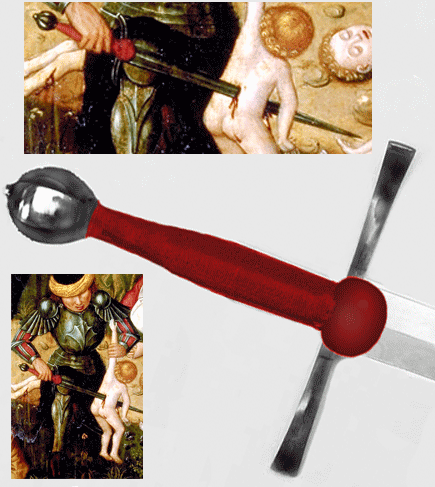



| Joel Chesser wrote: |
| are you planning to blue the furniture? |
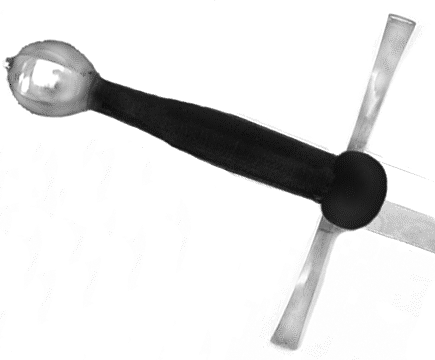
| M. Eversberg II wrote: |
| As for the pommel, the original is a screw-on, correct? |
| Nathan Robinson wrote: | ||
No. It is bored through and has a pommel nut. The pommel itself is not threaded. |
| M. Eversberg II wrote: |
| Since you asked, the only thing I'd change would be the rain guard. I've never found rain guards on the hilt to be attractive at all...rather, it's like dressing a pretty girl in a pretty outfit and then giving her a crappy hat. |
| Peter Johnsson wrote: |
| Great project Sean.
Keep the rain guard, by all means. It makes a lot of the character of the sword. Perhaps a tubular one could be an alternative, but these oval/tounge shaped ones are nice also because they are perhaps a bit more rare. The painting seems to suggest longitudinal fluting of the pommel, making it look like a peeled orange or garlic. Perhaps that is something you could add to the pommel you have. It is a few hours of file work, but it also makes for a great change in character. (also making the pommel a bit lighter. Sometimes a good thing, sometimes not so good. You´ll have to find that out when the sword is ready for try fitting. You´ll have fun with this one! Can´t wait to see the result :-) |
| Eric W. Norenberg wrote: |
|
For my part, I'd go with the chappe. It's right for the period & region. I think maybe the one in your photoshopped image might be a bit undersized - enlarge it maybe 15 %? I've actually been dreaming about the Windlass English Cut and Thrust, thinking that triple-fullered blade might make for a sweet, under-scaled type XX warsword for whichever of my wee bairns shows interest and a cool-enough head. Eric |
| Etienne Hamel wrote: |
| sorry if im a little late on this one but here is my opinion : if a rainguard looks ugly just change the color (personnally i like brown on swords) and try put a pattern on it (it sur wouldn't look historical but would be attractive :D ) but again it's my opinion. |
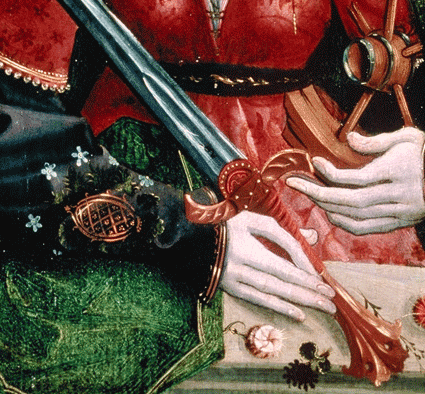
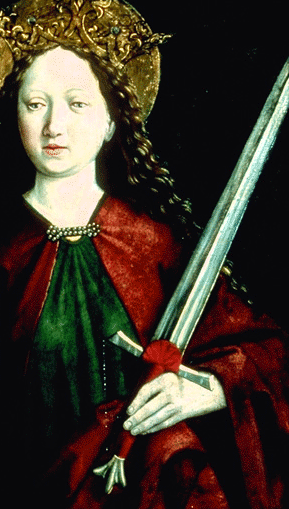
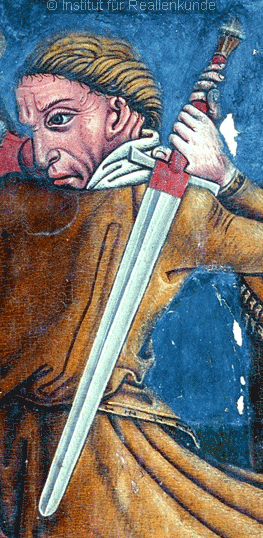
| Sean Flynt wrote: |
|
I was thinking about doing the "D" shape this time just for the sake of variety, but I'm not sure I understand the construction. The stitched sides of the tubular type keep it in place but it seems like the "D" type would tend to get pushed up or otherwise displaced. Are they meant to stay in place just by the stiffness of the formed leather?.... |